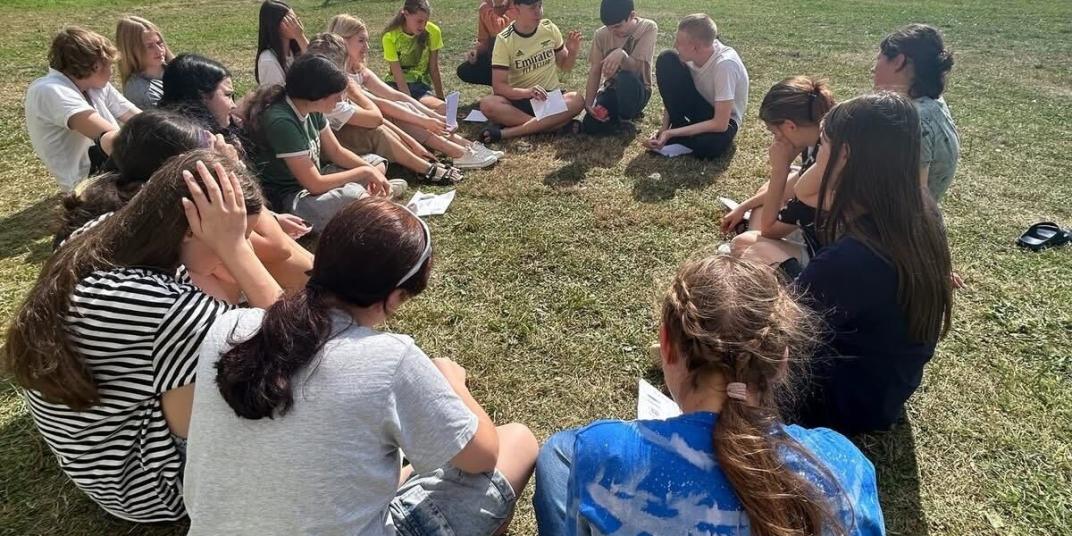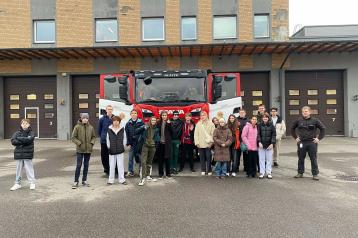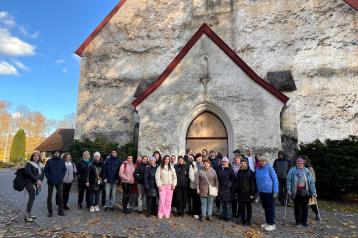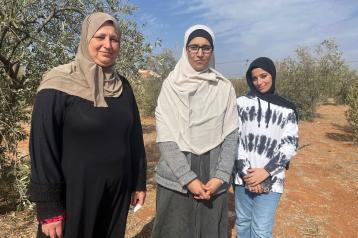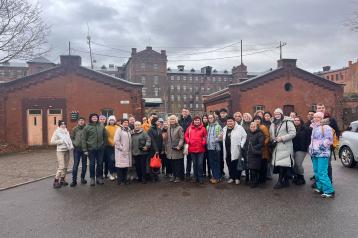Countries
Eesti Pagulasabi, in cooperation with Tallinn University and the Polish organisation Dobra Fabryka, has launched a programme aimed at supporting the integration of young people with a refugee background. The goal is to strengthen their language skills, support their entry into the labour market, facilitate social integration, and promote future independence.
According to Sigrid Solnik, Head of Estonian programmes at the Estonian Refugee Council, language education for children and young people with refugee and migrant backgrounds in Estonia remains inadequate. There is a lack of targeted, needs-based approaches that would help them succeed both in school and on the labour market in the future. “With our programme, we aim to address this educational gap. We are combining an anthropological approach with service design methodology to develop both language learning and a supportive environment for young people. We also help them with other school subjects and offer community-based and mental health support. We are very proud and excited to be working with Tallinn University – researchers from the School of Humanities are helping us implement unobtrusive language learning methods and assess the impact of our language courses,” Solnik explained.
The programme, which also includes local Estonian youth, will run until October 2026, with activities taking place in Tallinn and Ida-Viru County. Its aim is to support practical Estonian language learning, mental well-being, and the social integration of migrant youth, while also ensuring that the needs and rights of refugee-background young people are brought into sharper focus for decision-makers. Young people with refugee backgrounds as well as local Russian-speaking youth are invited to participate.
The programme will include a number of activities:
- Summer camps that promote language learning;
- Estonian language courses for young people, based on the unobtrusive language learning methodology developed by Tallinn University;
- Academic support in subjects where language barriers have caused learning gaps and where parents are unable to help;
- Community-based activities related to further education and future career opportunities, developed using design thinking – exploring how young people themselves view their challenges and creating practical solutions together with them;
- Group sessions offering mental health support for migrant-background youth.

The project is being implemented in collaboration with Tallinn University and the Polish organisation Dobra Fabryka. Funded by the European Union. Views and opinions expressed are however those of the author(s) only and do not necessarily reflect those of the European Union or European Social Fund Agency. Neither the European Union nor the Granting Authority can be held responsible for them.
